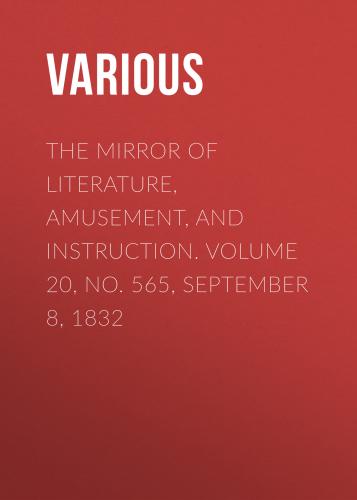At the time of the Reformation, sacred music, which had begun to run wild, was brought back to its first principles. The melodies of religious worship were rendered more heart-touching, by being set to words in the vernacular tongues, which every body could understand. Luther's hymn, "Great God, what do I hear and see," led the way. Henry VIII. hated the German reformer, and all that he did, but he burned to rival him in every thing, and he gave a stimulus to the public taste, by composing words and music for the service of the English church. In France, soon after the middle of the sixteenth century, when it was doubtful whether the nation would become Protestant or remain Roman Catholic, the pathetic tunes and devotional stanzas of the reformers obtained so great an influence over the minds of men, that the music of the temples, as the Protestant sanctuaries were called, to distinguish them from the Roman Catholic churches, became the fashionable melodies of the day. This taste found its way even to the court, and to the great alarm of the Romish party, some of the sweetest and most stirring of the psalms, which had been translated into French metre by Clement Marot, were set to music by Lewis Guadimel, and were constantly in the mouths not only of the Protestant families of the provinces, but of the ornaments of the saloons of Paris, and of the palace of the Louvre. It is said to have been quite astonishing how much this pious and simple device found favour for the Protestant cause, and induced people, who had never read Scripture before, to search the holy volume out of which those treasures were drawn, which so charmed their ears and their imagination. It is still the practice in most of the mountain churches to make sacred music a part of family devotion, and many of the tunes which Guadimel composed with such success are still sung to the praise of God. I can bear witness to the forcible manner in which these strains, rising to heaven from the lips of parents, children and domestics, quicken piety, and stir up the best affections of the heart towards God and man. I have seen and felt the effect produced by them in the humble dwelling of the village pastor, where none but human voices swelled the notes; and in the chateau, where the harp and the organ have mingled their fine sounds with the well modulated tones of an accomplished family of sons and daughters. My thoughts, at the moment I am writing this, are at Chateâu Blonay, but most of the voices, which I heard there, are now silent in death! I am thoroughly convinced that family worship, and congregational worship lose a great auxiliary to piety, when there is not the power or the inclination to join in psalmody.
LINES
Ev'n till thy latest hour, Lucretia! thou
Didst cherish that which but consum'd thy frame.
'Twas then it shone the brightest on thy brow,
Like the last flickerings of an earthly flame—
Yes, thy brain harass'd by deep toil, became
With all its fire, a tenant of the tomb,
And dim is now thine eye, Belov'd of Fame!
Thy cheek is pale—thy lip without perfume—
And there thou liest—the child of Genius—and its doom.
Like the proud eagle soaring to the skies,
Intent "the topmost arch" of heaven to scale,
When heeding naught that would oppose its rise,
It breaks with fearless nerve the tempest-gale—
And spreads its wings like a majestic sail,
Full on the bosom of the raging blast,
Thy spirit soar'd—but ah! too like us frail,
When the same breeze which bore it from the dust
Wing'd home the fatal shaft that tore its bleeding breast.
Would I could sing thy fame with thine own lyre,
Then should I breathe a more deserving lay,
A lay which every spirit would inspire,
And melt each eye to tears of sympathy;
But others at thy shrine, their tributes pay.
Offspring of Beauty! child of native song!
And I, ev'n I, would venture to essay,
To raise my lauding voice amidst the throng
Of those who weep thy loss—and who shall weep it long!
Spirit of Discovery
IMPROVED RAW SUGAR
[We find the following information communicated to the Literary Gazette, apparently by the parties connected with the improvement.]
Considerable interest has been excited in the market by the introduction of an improved native raw sugar, which portends very great advantages to all who are engaged in this so long unprofitable branch of colonial and commercial intercourse. It is pure raw sugar, obtained direct from the cane-juice, without any secondary process of decoloration or solution, and by which all necessity for any subsequent process of refining is entirely obviated. It is obtained in perfectly pure, transparent, granular crystals, being entirely free from any portion of uncrystallisable sugar or colouring matter, and is prepared by the improved process of effecting the last stages of concentration in vacuum, and at a temperature insufficient to produce any changes in its chemical composition; the mode of operation first proposed by the late Hon. Ed. Charles Howard, and subsequently introduced, with the most important advantages and complete success, into the principal sugar-refineries of Great Britain.
By this improved and scientific process of manufacture, the application of which to the purpose of preparing raw sugar from the cane-juice has now first been proposed, the most singular advantages are secured to the planter, in an increased quantity of sugar, the product of his operation, and in saving from the immense quantity of deteriorated material, uncrystallisable sugar and molasses, which were products of the former mode of operation, from the intense and long-continued degree of heat employed in the processes. The time and labour of the operation are also greatly
